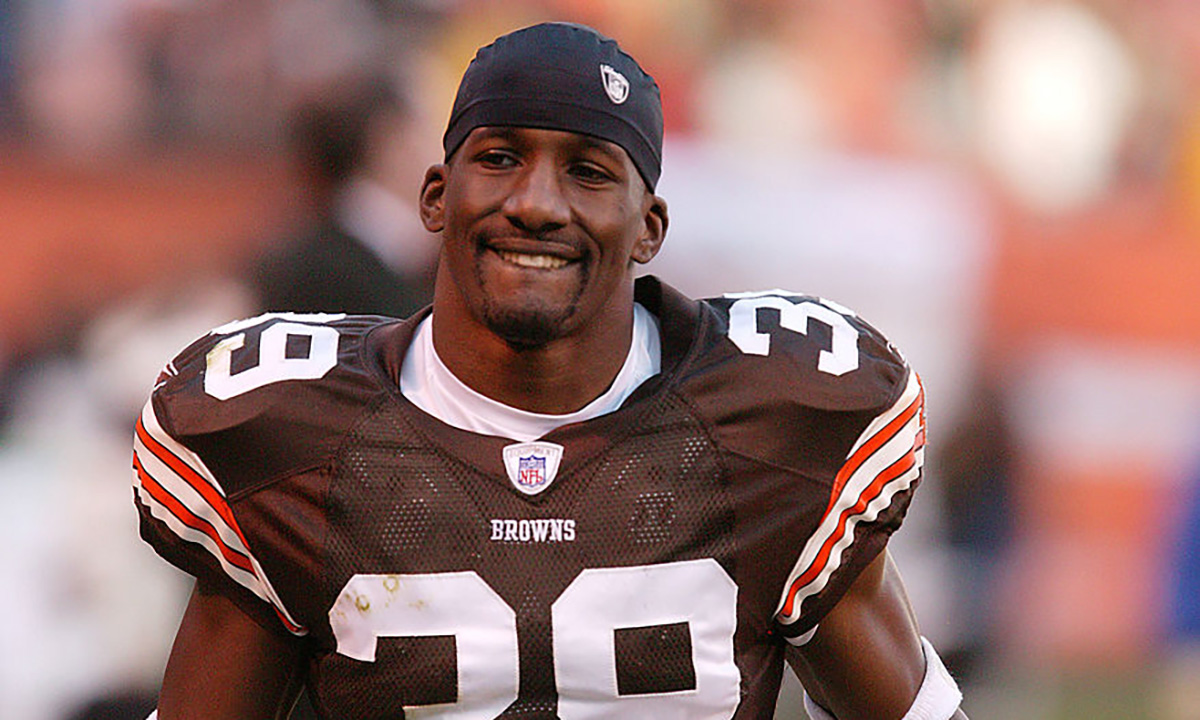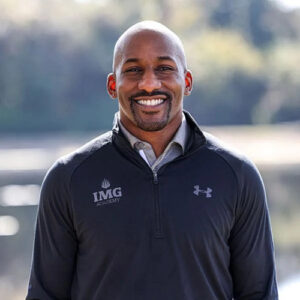NFL Pro-Turned-Educator on Helping Student Athletes Reach Their Full Potential
Lehan: When so much attention flows to a youngster’s athletic gifts, it’s easy to forget what the 'whole person' needs

Get stories like this delivered straight to your inbox. Sign up for The 74 Newsletter
Elite student athletes get so much attention for their physical gifts that their academic and personal identities are often overlooked. The result is that no matter how far they go in their sport, they may fail to live up to their fullest potential.
Don’t get me wrong — it’s great to be celebrated for having special skills on the field or court. As a former NFL player, I know how good that feels. But as an educator, I also know student athletes need help to recognize there’s more to them than their athletic prowess. With a majority (57%) of high schoolers playing on a sports team, so many students across the country need to feel supported.
For me, sports served as a powerful coping mechanism during a difficult childhood in and out of the foster care system. I was honored in school as a football player, but it wasn’t until my junior year in high school that I realized sports offered me the chance to go to college. That’s when I began to see there might be more to life than football — and maybe there was more to me than being an athlete.
This insight deepened over my four years at the University of Minnesota, where I started prioritizing school and earned a 3.9 GPA after the second quarter of my freshman year. After college, I enjoyed six great years as a cornerback with the Miami Dolphins and Cleveland Browns before beginning a new chapter in education. I started out as a high school dean of students and then principal of Osseo Senior High School in Minnesota. In 2020, I was named the Minnesota High School Principal of the Year, which remains one of my most significant accomplishments to date. I then went on to serve as assistant superintendent at Osseo Area Schools.
Today, I am head of school at IMG Academy, one of the world’s most acclaimed sports, performance and educational institutions, and I have a front-row seat to the interaction between sports and academics for elite student athletes. As a result, I believe more than ever that we as educators need to support the full human potential of young athletes and celebrate the inherent brilliance they may not even realize they have.
It’s easy to forget what the “whole person” needs when dealing with high-performance sports, when so much attention flows to a youngster’s athletic gifts. Yet this is what all student athletes deserve, regardless of their sport or performance level.
It’s tough for student athletes to think beyond the one thing they probably care most about — their sport — when so much of their time, energy and identity is wrapped up in athletics. Parents, coaches, teachers and mentors can help by asking three questions: “Who are you, really?” “What do you stand for?” and “How do you know what your values are?”
Not only can these questions help to enlarge young people’s idea of themselves, but asking them can also assist students in defining what matters to them in life, beyond their sport. And they point to the importance of identifying and staying true to core values, regardless of what others may say.
These aren’t easy questions to answer — or to ask. I’ve found that I have to be willing to ask more than once to get answers that go deeper than, “I’m an athlete. I play this position.” But stick with it and see what comes up, because these questions are guideposts to where students are heading.
Adults can help prepare student athletes to dig deep for answers by considering these suggestions:
- No labels. As much as possible, avoid pinning tags or labels on student athletes. High-performance sports can narrow people’s views of who they are, but the role of educators is to keep reminding students that they are more than their scores or records, even if — or, especially if — those are stellar.
- Show vulnerability. Competing at an elite level requires toughness and discipline. But that doesn’t mean athletes should stifle their feelings, even those that are uncomfortable. When I talk about my NFL career to students, I also share about the pain I experienced in foster care and how lost I felt as a student athlete. It’s important to let young people see that even professional athletes have sad or hurt feelings. That’s just part of being human.
- Teach empathy. Showing vulnerability is important because student athletes need to recognize the humanity of others. Empathy is what brings out the best of human character. The greatest athletes understand this and act on it.
- Admit you don’t have all the answers. Most youngsters eventually figure out that adults don’t know everything. But if grown-ups have already shown that they recognize their own fallibility, they are far more likely to retain young people’s respect, even with those imperfections.
Talented student athletes deserve the best support, coaching and resources possible so they can make full use of their talents and strengths. They also need to build a strong foundation for developing a true sense of self through exposure to rich experiential learning such as internships and volunteer opportunities, relevant instruction and transferable life skills.
This will ensure that once they move into college or career, they will have been exposed to alternative avenues to success. And from a holistic standpoint, they will have acquired the values they need to achieve and persist in the bigger game of life.
Get stories like these delivered straight to your inbox. Sign up for The 74 Newsletter

;)
